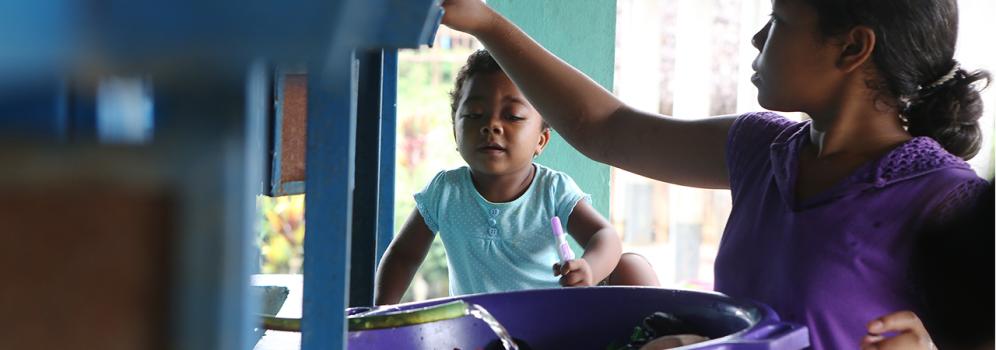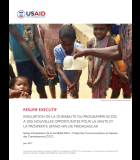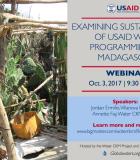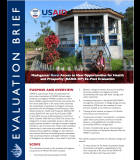Rural Access to New Opportunities for Health and Prosperity (RANO-HP)
Goal
RANO-HP was active from October 2009 to June 2013 and was implemented by a consortium led by Catholic Relief Services (CRS). The activity was designed to increase sustainable access to safe water supply, improve sanitation coverage, and expand hygiene practices in 26 rural communities in Madagascar.
Justification
According the CRS, the limited access to clean water, high rates of open defecation, improper handling of children’s stools and poor hygiene behavior has resulted in waterborne diseases, like diarrhea, being one of the leading causes of child mortality in Madagascar. When the project was first implemented, the total burden of water- and sanitation-related illness on the Malagasy economy was more than 300 times greater than the amount of public money being invested in the sector. Further compounding the problem, poor natural resource management resulted in the loss of more than 80% of the island’s natural forest cover, which contributed to the pollution and seasonal variability of surface water and aquifers.
How It Was Done
The project mobilized the private sector and the community to work together to provide access to clean drinking water. Through the project, more than 680 rehabilitated or new, protected water points were installed. The implementers promoted hygienic behaviors, the use of family latrines, WASH-friendly schools and health centers. Communities in general, became better organized in managing their water supply systems.
Project Legacy
USAID completed an ex-post evaluation of RANO-HP in 2017 to learn how some of the project results were sustained over time. Learn more about the evaluation.





